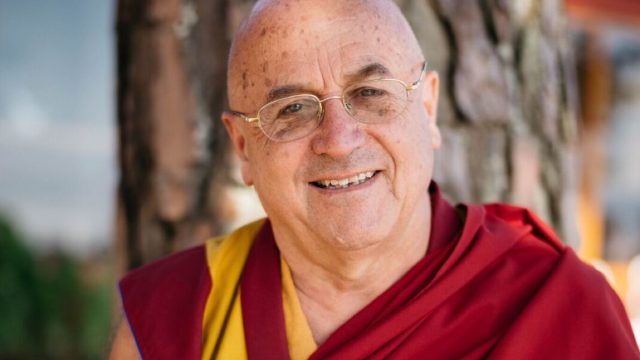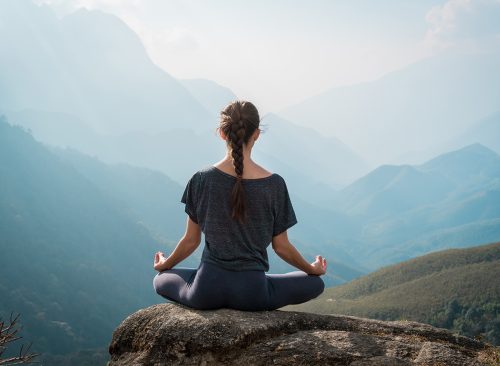7 Rules for a Happy Life, According to the “World’s Happiest Man”
Do these things for a happy life, says an ordained Buddhist monk.

Matthieu Ricard, an ordained Buddhist monk and internationally best-selling author of books about altruism, animal rights, happiness and wisdom, has been dubbed the “world’s happiest man.” In the early 2000s, researchers at the University of Wisconsin found that Ricard’s brain produced pronounced levels of gamma waves, linked to learning, attention and memory. In a new interview with The New York Times Magazine he reveals his 7 rules for a happy life.

Ricard meditations, revealing that the Dalai Lama once told him to meditate about everything. “He said, ‘In the beginning, meditate on compassion; in the middle, meditate on compassion; in the end, meditate on compassion,’” he told him.

“Instead of hating, you should learn to be compassionate,” he stresses. He says, “compassion is about remedying the suffering and its cause,” adding that “compassion is to remedy suffering wherever it is, whatever form it takes and whoever causes it.” “If someone beats you with a stick, you don’t get angry with the stick — you get angry with the person. These people we are talking about are like sticks in the hands of ignorance and hatred. We can judge the acts of a person at a particular time, but compassion is wishing that the present aspect of suffering and the causes of suffering may be remedied.”

In “moments of extreme sadness — especially when you see so much suffering,” he suggests channeling it into compassion. “But this should kindle your compassion, and if it kindles your compassion, you go to a stronger, healthier, more meaningful way of being. That’s what I call happiness. It’s not as if all the time you jump for joy. Happiness is more like your baseline. It’s where you come to after the ups and downs, the joy and sorrows. We perceive even more intensely — bad taste, seeing someone suffer — but we keep this sense of the depth. That’s what meditation brings.”

“Emotions are just like any characteristic of our mental landscape: They can change,” he says. “We can become more familiar with their process; we can catch them early. It’s like when you see a pickpocket in a room: Aha, be careful. Twenty-five hundred years of contemplative science and 40 years of neuroplasticity — everything tells you we can change. You were not born knowing how to write your columns. You know it’s the fruit of your efforts. So why would major human qualities be engraved in stone from the start? That would be a total exception to every other skill we have.”

“When you are in that moment of unconditional love — say, for a child — this fills our mind for 30 seconds, maybe a minute, then suddenly it’s gone. We all have experienced that. The only difference now is to cultivate that in some way. Make it stay a little longer. Try to be quiet with it for 10 minutes, 20 minutes. If it goes away, try to bring it back. Give it vibrancy and presence. That’s exactly what meditation is about. If you do that for 20 minutes a day, even for three weeks, this will trigger a change,” he suggests.

“If you can, as much as possible, cultivate that quality of human warmth, wanting genuinely for other people to be happy; that’s the best way to fulfill your own happiness. This is also the most gratifying state of mind,” he says. “If we try humbly, with some happiness, to enhance our benevolence, that will be the best way to have a good life. That’s the best modest advice I could give.”
RELATED: 30 Area Codes to Watch for in Latest Phone Scam

He also encourages exercise. “I walk in the forest. I try to count 10,000 steps to be healthy at 77 years old.”














